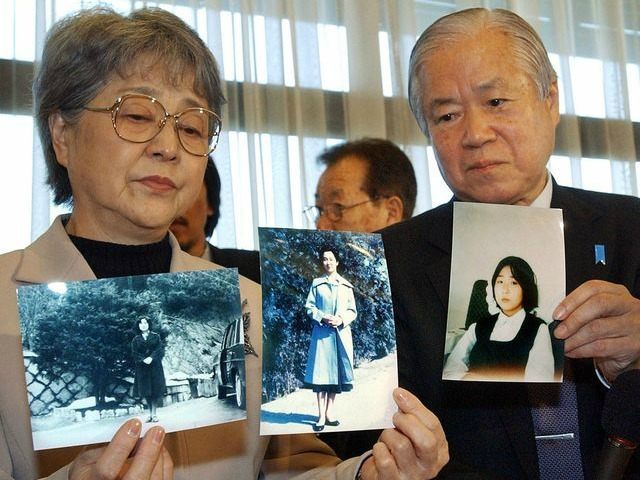Japan has recalibrated its estimate of how many of its citizens North Korea has abducted in the past four decades. It has come up with a figure of 886, demanded Pyongyang release the kidnapped who are still alive, and come clean on the fate of those who have died since being abducted.
An extensive study of police records found evidence of North Korean involvement in ten more missing persons cases than previously estimated, bringing the total number of suspected abductions by the communist regime to 886. The Japanese National Police Agency cited the cases as a couple on Hyogo Prefecture and a number of other cases throughout the country, according to the Kyodo News Agency. The agency notes that only 17 of the suspected cases, the total now nearing one thousand, have been confirmed abductions committed by agents of the rogue communist regime.
North Korea has been arbitrarily abducting Japanese citizens since the 1970s. The nation has admitted only to thirteen of these abductions and claims all the individuals accounted for died while in captivity, releasing five of them. It has provided Japan with no evidence of their death or information regarding what happened to them after their abduction.
An extensive 2015 report in The New Yorker, citing personal interviews with one of the five abducted and released, notes that evidence suggests North Korea kidnapped hundreds, if not thousands, of foreign nationals to use them to teach their spies how to best blend into their native populations. Kaoru Hasuike, one of the five released, said he was taught Korean and later forced to teach Japanese to spies. His children were prohibited from knowing they were ethnically Japanese, and captives were banned by law, like all foreigners, from marrying North Korean citizens. While North Korea is believed to have abducted nationals from across the world, The New Yorker notes that “Japanese nationals were especially sought after, because their identities could be used to create fake passports.”
This month, North Korea disbanded an investigative team assembled to find the truth about abducted Japanese citizens as punishment for the Japanese government’s renewed push for the international community to condemn recent North Korean belligerence. This included the detonation in January of a nuclear weapon North Korea claims to have been a hydrogen bomb. (Most experts doubt the blast was large enough to have been created by a hydrogen bomb.) Japan had convinced North Korea to look into the disappearances, as the Kim Jong-Il government claimed most abductions had occurred before its time.
The move has intensified Japan’s push for international action against North Korea. Japan has resumed high-level talks with regional rival China regarding potential action against Pyongyang, sending Japanese Deputy Foreign Minister Shinsuke Sugiyama to meet with counterpart Xuanyou Kong to discuss action against the nation this week. Japanese Foreign Minister Fumio Kishida has praised China’s tentative agreement to impose further sanctions against North Korea drafted alongside the United States last week, drafted during Chinese Foreign Minister Wang Yi’s visit to Washington.
The proposed Chinese-American sanctions would “freeze the assets of anyone doing business related to North Korea’s nuclear or weapons programme or involved in human rights abuses” and support radio broadcasts into North Korea, long believed to be among dictator Kim Jong-un’s biggest pet peeves. Japan independently strengthened its sanctions against North Korea in February. When South Korea began to once again broadcast information into North Korea in January, Pyongyang responded by dumping heaps of garbage – cigarette butts, used toilet paper, propaganda flyers – across the Korean border.
China’s participation in a new round of sanctions talk is somewhat of a surprise following Chinese rhetoric that China is not responsible for North Korea’s continued stability as an oppressive regime, despite being the communist nation’s largest ally. “North Korea and the U.S. still have not made peace, they’ve been in an extended cease-fire. … You need to think how to bring an end to the war and enter a more normal relationship,” a Chinese legal scholar contended in Chinese state media. State media have been promoting the claim that North Korea is a “U.S. obligation” to keep under control, not China’s.
North Korea has since expanded its erratic behavior, however, threatening attacks on “the mainland U.S.” and issuing orders for more rocket launches, violating UN sanctions.

COMMENTS
Please let us know if you're having issues with commenting.